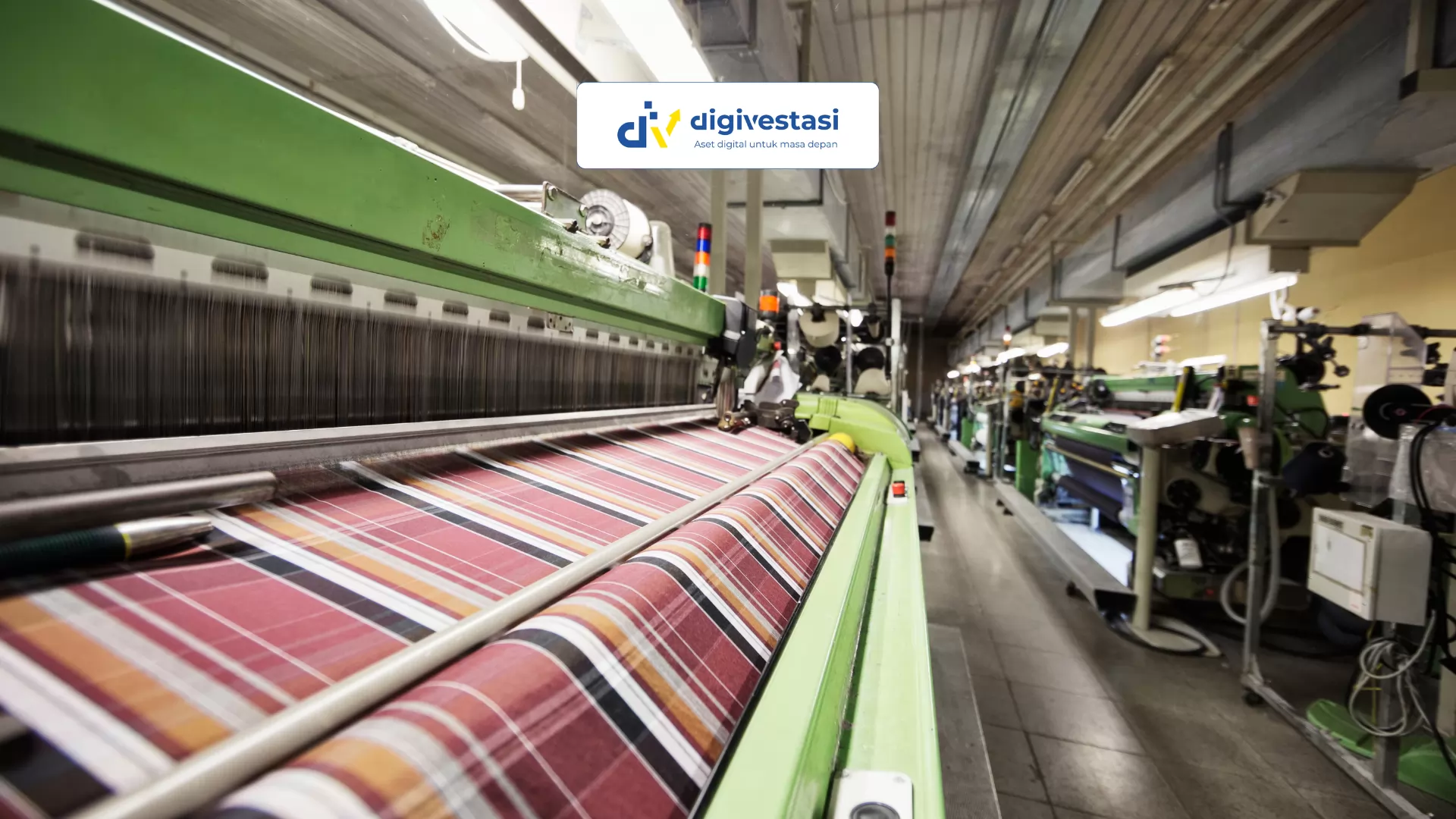
Crypto News
Deutsche Bank Set to Become Banking Partner for Bullish - The Crypto Exchange Listed on NYSE!
/index.php
Investasi Digital - Posted on 29 July 2025 Reading time 5 minutes

The Indonesian textile and textile products industry (TPT) continues to face serious challenges from a flood of cheap imported goods from China. One of the latest blowbacks is PT Asia Pacific Fibers Tbk (POLY), which announced the permanent closure of its plant in Karawang that manufactured textile chemicals and fibers. The decision came after the plant had been suspended for over six months, beginning November 1, 2024. According to POLY’s management, the closure reflects severe pressures facing the industry, domestically and internationally.
Global factors include global overcapacity, rising export tariffs to the U.S., and surging raw material costs. Meanwhile, domestic pressures stem from unclear implementation of antidumping duties and import regulation revisions that fell short of industry expectations. The accumulation of these factors has led to a slump in demand. Adding to the strain, POLY is undergoing a debt restructuring process that is expected to take considerable time. Corporate Secretary Tunaryo explained via BEI disclosure that maintaining an unused production facility for over six months incurs high costs, making it technically and commercially unfeasible to restart operations.
The shutdown in Karawang is projected to cause sales of polyester staple fiber, polyester chips, and performance fabrics to plummet by up to 76% in 2025. Previously, these products were supplied by the Karawang plant as raw materials for filament yarn production at POLY’s Kendal facility, but now these inputs are sourced from third parties, both local and imported.
Capacity utilization has collapsed: in 2024, polyester staple fiber utilization stood at 73,727 tons from a capacity of 198,000 tons; production of polyester chips reached 132,130 tons from 330,400-ton capacity; and performance fabrics used was 819,000 yards out of 6 million-yard capacity.
As a result, POLY has terminated employment for most of its Karawang plant employees—mostly non-core staff—though the exact number was not disclosed. The company is also actively in talks with suppliers and customers regarding payments, and negotiating its debt restructuring proposal with creditors. POLY has left open the possibility of reopening the Karawang plant if creditors approve the restructuring plan, including involving new investors for working capital and machinery upgrades.
Alternatively, the company may pivot to new TPT-related businesses or increase capacity utilization at its Kaliwungu, Kendal plant.
Redma Gita Wirawasta, Chairman of the Indonesia Filament Yarn and Fiber Producers Association (APSyFI), confirmed that POLY's distress is tied to domestic competition from cheap imported goods and U.S.-imposed antidumping duties (AD duties). “APF’s exports to the U.S. have been disrupted since U.S. imposed AD duties on filament yarn after discovering transshipment of Chinese products via Indonesia,” he said. Redma explained that in recent years, many Chinese goods have been routed through Indonesia to bypass high U.S. tariffs, resulting in a surge of Indonesian textile exports that were actually Chinese-origin products. Consequently, U.S. imposed AD duties on Indonesian textiles, even though they were not domestically produced.
He added that APF has also been undercut by cheap Chinese imports, and the government's rejection of AD duties on Chinese filament have exacerbated the pressure. “APF Karawang planned to resume operations if AD duties were applied, but since that was rejected, the influx of cheap imports has intensified the pressure,” Redma explained. He stressed that implementing AD duties on filament yarn is the simplest and most effective solution, as import quotas—currently issued without regard for domestic supply capacity—have proven ineffective.
The AD duty proposal has sparked tension between upstream and downstream segments of the textile industry. Upstream producers support the duties due to lost competitiveness from dumped Chinese yarn. In contrast, downstream players worry that duties would disrupt domestic production capacity, hurt export competitiveness, and raise local prices. An investigation was initiated by the Indonesian Anti-Dumping Committee (KADI) on September 12, 2023, following a petition by APSyFI, targeting certain synthetic filament yarn types including partially oriented yarn (POY) and drawn textured yarn (DTY), classified under HS codes 5402.33.10, 5402.33.90, 5402.46.10, and 5402.46.90.
However, the government decided not to pursue KADI’s recommendation, considering the broader context of the national TPT industry—particularly limited domestic supply of filament yarn and potential negative effects on downstream segments. The decision also took into account that the TPT upstream sector was already subject to trade remedies such as Safeguard duties (PMK 46/2023) and antidumping duties (PMK 176/2022) on polyester staple fiber from India, China, and Taiwan.
Imposing further AD duties on filament yarn would likely elevate production costs and reduce the downstream industry's competitiveness, amid ongoing geo-political-economic dynamics, reciprocal tariffs from the U.S., and industry shutdowns.
Source: bisnis.com
What do you think about this topic? Tell us what you think. Don't forget to follow Digivestasi's Instagram, TikTok, Youtube accounts to keep you updated with the latest information about economics, finance, digital technology and digital asset investment.
DISCLAIMER
All information contained on our website is summarized from reliable sources and published in good faith and for the purpose of providing general information only. Any action taken by readers on information from this site is their own responsibility.